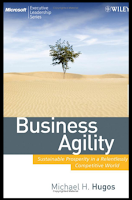 Controversial writings about new and revised economic theory, analysis from professors at some of the top universities in the world on the recent economic downturn, and a reevaluation of what the best minds in the history of economics have to offer us.
Controversial writings about new and revised economic theory, analysis from professors at some of the top universities in the world on the recent economic downturn, and a reevaluation of what the best minds in the history of economics have to offer us.
A Failure of Capitalism: The Crisis of '08 and the Descent into Depression (BOOK): by Richard A. Posner
A surprising volume that explains what happened to the banking system and economy in terms the lay reader can easily understand...[Posner's] critique is bracing, all the more so because it comes from a right-leaning thinker normally hostile to the ministrations of government bureaucrats. –Paul M. Barrett, Washington Post Book World
Before seeking political asylum in free-market Hong Kong, consider reading a new book that critiques what went wrong with capitalism, written in order to save it. Judge Richard Posner's A Failure of Capitalism: The Crisis of '08 and the Descent into Depression is noteworthy. As a longtime
 Business Agility: Sustainable Prosperity in a Relentlessly Competitive World (BOOK): by Michael Hugos
Business Agility: Sustainable Prosperity in a Relentlessly Competitive World (BOOK): by Michael Hugos
The relentless pursuit of industrial efficiency no longer yields the profits it once did because it requires a level of business predictability that no longer exists. Instead, the Internet and global video and telecom systems provide a massive and continuous flow of data that causes the whole world to behave like a giant stock market, with all the volatility and uncertainty that goes along with such markets. Responsiveness now trumps efficiency.
By being responsive to the evolving needs and desires of specific groups of customers, companies can wrap their products and services in a tailored blanket of value-added services to consistently earn an additional four percent or more gross margin than they would otherwise earn for the product or service alone. This customer and market specialization is the most promising and the most sustainable source of profits in our fluid, real-time economy.
Invitation to Economics: Understanding Argument and Policy (BOOK): by Thomas Mayer
“This well-written, clearly organized book presents a nontechnical, overarching view of economic theory and how it gets applied and interpreted”—Choice Reviews, June 2009
"I wish I had read a book of this kind when I started studying economics. It is more than an introduction to economics--it is an introduction to economic thinking."–Facundo Albornoz-Crespo,
“Mayer’s work is a timely discussion of behavioral economics and other movements within the field. His comments on the subprime mortgage crisis in particular provide the book with an up-to-date flavor.”–
 Economics 2.0: What the Best Minds in Economics can Teach You about Business and Life (Okonomie 2.0. English translation) (BOOK): by Norbert Haring and Olaf Storbeck
Economics 2.0: What the Best Minds in Economics can Teach You about Business and Life (Okonomie 2.0. English translation) (BOOK): by Norbert Haring and Olaf Storbeck
"Economics 2.0 is a very readable and timely collection by two of
"The nature of economic research has changed drastically over the last years, revoking the mantra of rationality, exploring creative new data sources, and venturig into topics far from the classical bundle of themes. This book provides a very entertaining and insightful overview of where modern economic stands today." --Ulrike Malmendier, Associate Professor of Economics,
 The Crash of 2008 and What it Means: The New Paradigm for Financial Markets (BOOK): by George Soros
The Crash of 2008 and What it Means: The New Paradigm for Financial Markets (BOOK): by George Soros
"Totally compelling. They're wrong about oil, by George. In short, the standard economic assumption that supply and demand drive prices is only a starting point for understanding financial markets. In boom-bust cycles, the textbook theory is not just slightly inaccurate but totally wrong. This is the main argument made by George Soros in his fascinating book on the credit crunch, The New Paradigm for Financial Markets, launched at an LSE lecture last night." — BBC Business editor Robert Peston
"The next generation of economists will have to understand financial bubbles rather than ignore them, as Greenspan and his fellow central bankers have done. They would be well advised to give Soros's theory of reflexivity serious consideration."—the Times
The Making of Modern Economics: The Lives and Ideas of the Great Thinkers (BOOK): by Mark Skousen
A candid, irreverent, passionate, sometimes humorous and often highly opinionated account of the lives and theories of famous economists from Adam Smith and Karl Marx to John Maynard Keynes and Milton Friedman. The author's unique view compares the development of economic thought to the construction of a building, designating Adam Smith's 1776 Wealth of Nations as the foundation. He contends that Smith's philosophy of natural liberty and the invisible hand was a sound foundation that created a new era of wealth and economic growth spanning two centuries. With the inclusion of photographs, diagrams, commentaries, and even appropriate music selections, each chapter is devoted to a major economist and his theories, showing how he added to or detracted from Smith's positions. Skousen ends on an optimistic note even as fighting continues over which economic policies to pursue in times of crisis, uncertainty, and globalization. –Mary Whaley, American Library Association
The Making of Modern Economics is a reference bible. What an absolutely ideal gift for college students. –The National Review





No comments:
Post a Comment